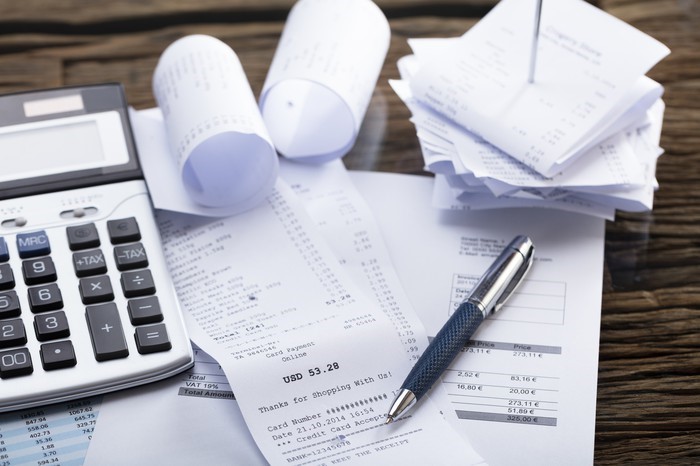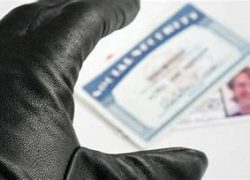If you’re going to itemize specific expenses and deductions when filing your taxes this year but haven’t saved every single thing, you need to know which receipts you should prioritize having on hand. Find out exactly which receipts you should be saving and why — and how to be well-prepared when you have taxes due.
Receipts you need for itemizing deductions
If you are an individual filer, you might be able to use itemized deductions to receive a greater reduction in tax liability than if you use the standard deduction. Itemizing means you add up individual expenditures or donations throughout the tax year that can be subtracted from your adjusted gross income. Whether you do taxes online or not, you’ll need to refer to receipts for filing federal and state taxes.
To gauge whether you should itemize your tax return, you need to know the standard deduction for your filing status on your 2019 tax return. If your total itemized expenses are less than the standard deduction, then you should take the standard deduction.
The standard deductions for 2019 are:
- $12,200 for an individual filer
- $18,350 for a head of household
- $24,400 for married couples filing jointly or a qualifying widower
The goal in saving receipts is to have paperwork that proves the numbers in your forms for state and federal income taxes are correct. Here’s a list of expenses you can itemize and receipts you should hold on to:
- Business use of your car: Most business owners elect to use the mileage deduction for tax purposes. You’ll need to keep a record of the miles driven for business on your vehicle. If you chose to deduct actual expenses, you’ll need to maintain receipts for gas, oil changes, repairs, and parking expenses.
- Charitable donations: Whenever you donate an item — whether it’s clothing or a car — ask for a tax-deductible receipt or tax receipt for donations, which provides an official record of your donation. An estimated value for the item must be determined and recorded by you on the receipt.
- Childcare expenses: If you have a dependent child age 12 or under, and paid someone to care for him, take advantage of the childcare credit and keep your receipts or paperwork for what you spent.
- College savings plans records: Keep records of savings accounts, including college savings plans. These kinds of savings plans are not tax-deductible, but if you have a 529 plan, your investment will grow tax-deferred.
- Educational expenses: Hold on to receipts from tuition paid, books, supplies, lab fees, research expenses, and transportation and travel costs.
- Homeowner expenses: Keep receipts for expenses related to the home you own; this includes closing documents for buying a home, invoices for home improvements, and statements for property taxes paid. Plus, if you operate a home-based business you’ll want to keep track of your monthly home operating expenses (utilities, phone, internet, etc.)
- Local and state income taxes: Keep tax forms from years you want to claim.
- Medical and dental expenses: Keep track of prescriptions and medical bills paid, including co-pays, lab tests fees, and emergency room visits. Alternative therapy might qualify for a deduction since the IRS considers payments made to nontraditional medical practitioners as a deductible medical expense.
- Mortgage interest or taxes: Keep receipts from mortgage and tax payments made for your home throughout the year.
- Unreimbursed business travel and entertainment expenses: Hold on to receipts from food purchases for clients, as well as oil changes, repairs, gas, and mileage for business or work if you were not previously reimbursed.
Why you should always keep tax records
When organizing your receipts, especially as a business owner, the IRS recommends developing and maintaining a record-keeping system that clearly shows your income and expenses. It’s also a good idea to keep track of dates and receipts of amounts paid if you often donate money or pay expenses for your job and would like to claim itemized deductions for taxes.
We advise our clients to snap pictures of their receipts and upload them to their client portal all year long. You can also create a photo album in your phone and snap pictures
If going through and cataloging all your receipts is not part of your ideal solution to how to prepare for taxes, you might need to employ professional help with your taxes. Contact us to learn more about how we work with clients all year long.









